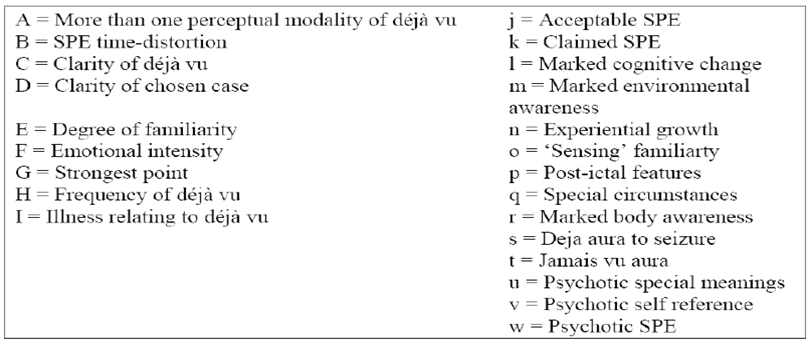
The group tested this with subjects using the words bed, pillow, night and duvet, deliberately leaving out the word “sleep” that would logically go with this group. Not surprisingly, their brains recognized the places that had flashed by earlier thanks to the power of their subconscious.Īn article from explains a research team has found evidence that a déjà vu is when the brain checks to ensure its memories are correct. They were then shown images of these various locations (for longer periods), and then asked which they were familiar with. The source explains this theory was actually tested with student participants that were first very briefly “flashed” by images – not long along for their conscious brains to absorb – of places they’ve never visited. In other words, our subconscious minds recall an object, but our conscious minds don’t. talks about this theory, and how it can cause “a subliminal recognition of the object in our experience of déjà vu”. The source notes the physicist explains the idea of aligning universes “is complicated, highly unproven, but perhaps, occasionally, possible but doubtful”.

Micho Kaku who (among many others) questions this theory, but doesn’t complete discount it. explains there is a theoretical physicist named Dr. Déjà vu then occurs when 2-of these parallel universes temporarily come into sync to give the chills. We had to throw at least one “fringe” theory in there – the one that something similar in happening to a different version of you in another dimension. It’s also not understood why this brain glitch might occur.

Basically, it comes down to this: dual processing in when your brain is trying to process an experience and store it in your long-term memory at the same time, creating the feeling that it has happened before. It has to do with how the brain stores experiences or information, explains other sources. Dual processing is essentially a glitch in your brain, “when two cognitive processes are momentarily out of sync”. Psychology Today explains the dual processing theory could be the culprit for your bout of déjà vu.

However, you weren’t conscious when you dreamt about the road or the setting you were in, so you’re not going to be able to easily trace where you’ve seen the place before. It can be something a lot less dramatic, like driving down a road that’s familiar from a dream. calls it a “precognitive dream,” and said they are tied to folklore because several people apparently dreamt the Titanic would sink, leading people to think humans have a 6th-sense. It’s quite possible that a scenario that you’ve dreamt about has unfolded in real life – and it’s probably chance, this doesn’t mean you’re a sage.


 0 kommentar(er)
0 kommentar(er)
